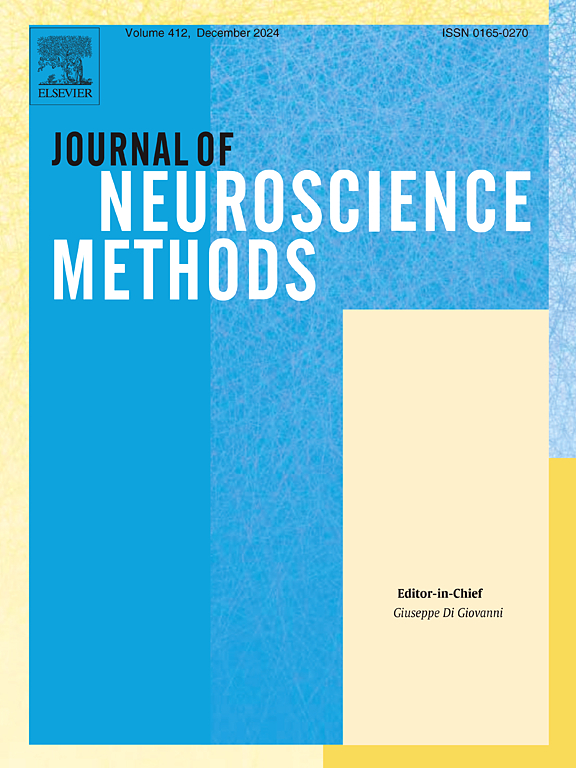Positive reinforcement-based magnet training permits social housing in catheterized squirrel monkeys
IF 2.7
4区 医学
Q2 BIOCHEMICAL RESEARCH METHODS
引用次数: 0
Abstract
Background
Non-human primates play a critical role in neuroscience research. Though they are social animals, laboratory study requirements can sometimes require single housing and thereby prevent social housing.
New Method
To eliminate single housing and promote well-being within our squirrel monkey colony, we used positive reinforcement training in combination with magnetic/mechanical clasps and custom jackets to permit pair housing of catheterized squirrel monkeys used in behavioral studies.
Results
Adult Saimiri boliviensis boliviensis monkeys (n = 7) readily progressed through a six-stage training procedure for cooperative handling and transport from the home cage to the experimental testing rooms.
Comparison with existing methods and conclusions: Given the evidence of isolation induced stress and neurobiological consequences in multiple species, and consistent with an increased regulatory emphasis on social housing of non-human primates, the methods presented herein provide a method for handling squirrel monkeys in behavioral studies that is compatible with social housing.
基于正强化的磁铁训练能让导管松鼠猴适应社会生活
背景:非人灵长类动物在神经科学研究中发挥着至关重要的作用。虽然它们是社会性动物,但实验室研究要求有时会要求单人饲养,从而阻碍了社会性饲养:新方法:为了在松鼠猴群中消除单只饲养并促进其福利,我们使用正强化训练,结合磁性/机械扣和定制夹克,使用于行为研究的导管松鼠猴能够配对饲养:结果:成年 Saimiri boliviensis boliviensis 猴(n = 7 只)很容易通过六个阶段的训练程序取得进步,从而能够合作处理并从家庭笼子运送到实验测试室:与现有方法的比较:鉴于有证据表明在多个物种中隔离会诱发压力和神经生物学后果,并且随着监管部门越来越重视非人灵长类动物的社会化饲养,本文介绍的方法为行为研究中处理松鼠猴提供了一种与社会化饲养相适应的方法。
本文章由计算机程序翻译,如有差异,请以英文原文为准。
求助全文
约1分钟内获得全文
求助全文
来源期刊

Journal of Neuroscience Methods
医学-神经科学
CiteScore
7.10
自引率
3.30%
发文量
226
审稿时长
52 days
期刊介绍:
The Journal of Neuroscience Methods publishes papers that describe new methods that are specifically for neuroscience research conducted in invertebrates, vertebrates or in man. Major methodological improvements or important refinements of established neuroscience methods are also considered for publication. The Journal''s Scope includes all aspects of contemporary neuroscience research, including anatomical, behavioural, biochemical, cellular, computational, molecular, invasive and non-invasive imaging, optogenetic, and physiological research investigations.
 求助内容:
求助内容: 应助结果提醒方式:
应助结果提醒方式:


